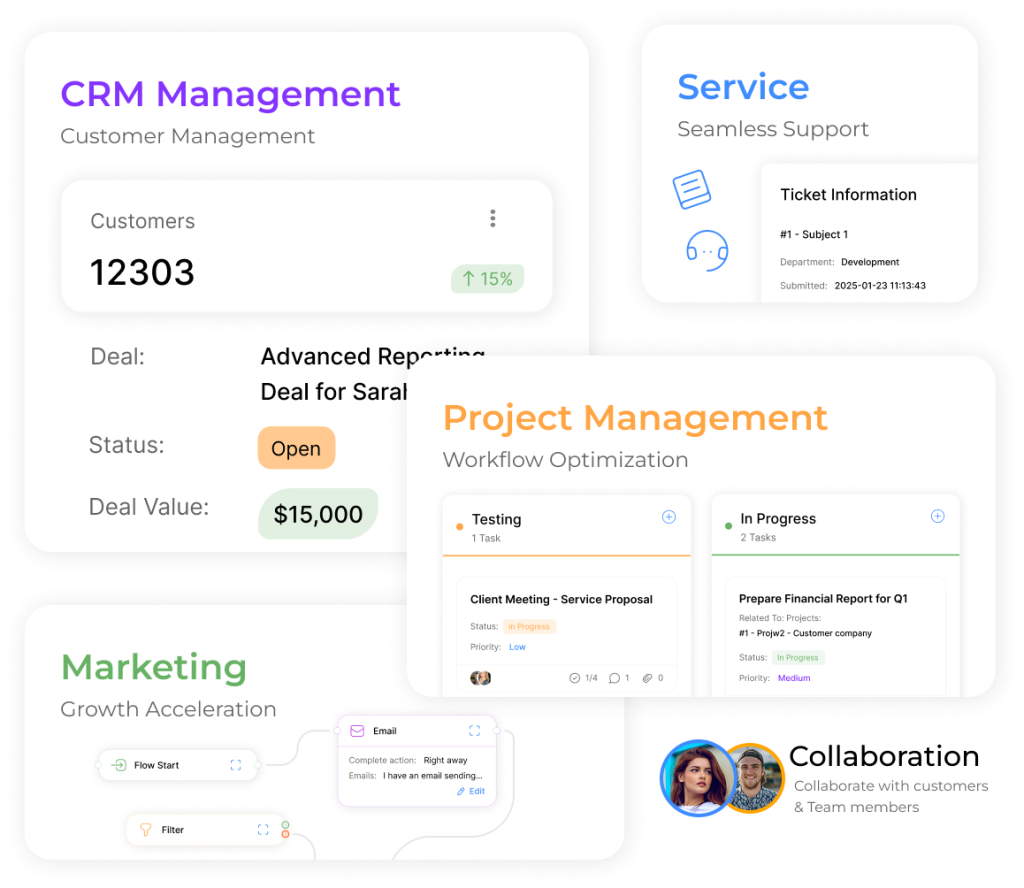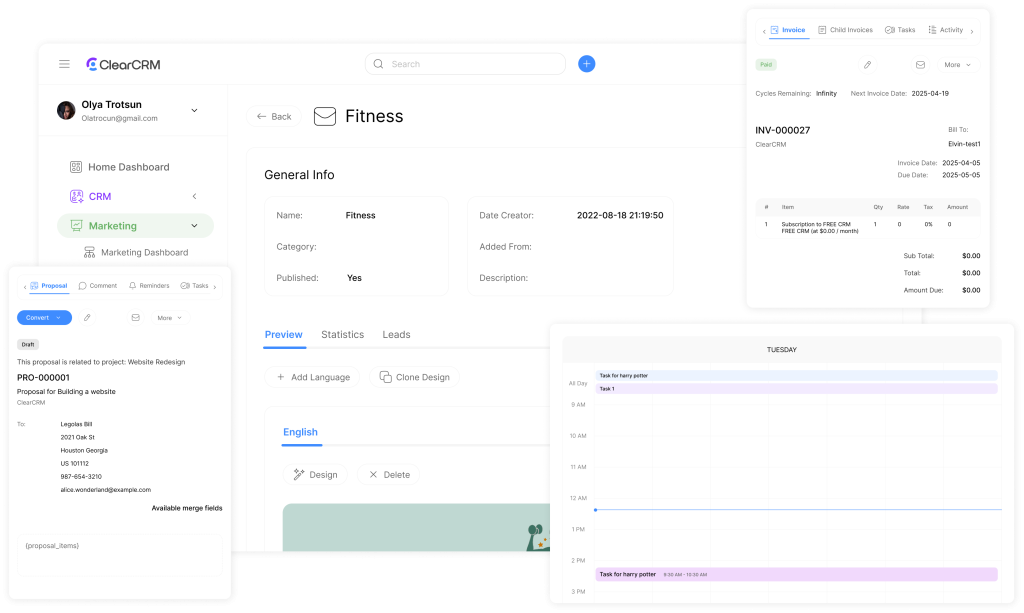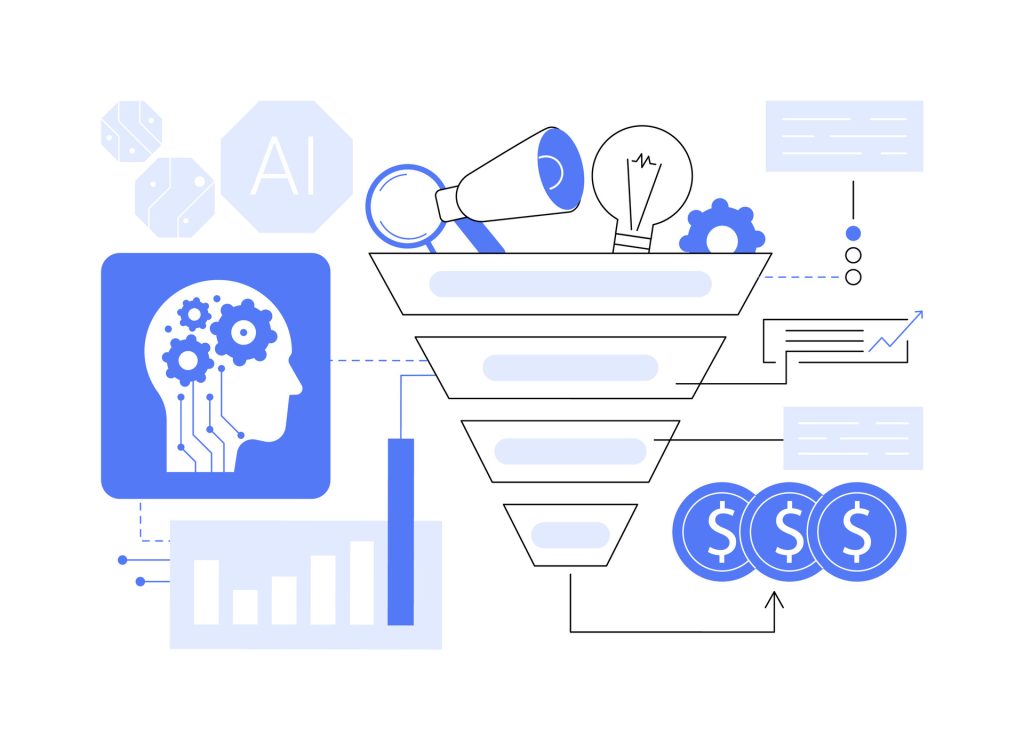Why CRM is More Than Software—It’s Your Business Growth Partner.
Introduction: CRM is More Than Just a Tool
In today’s competitive business environment, Customer Relationship Management (CRM) has become a necessity rather than a luxury. Businesses are not just looking for a tool that stores customer data—they need a strategic partner that can drive sales, improve customer engagement, and enhance efficiency.
Many companies still think of CRM software as a glorified contact management database, but the reality is far beyond that. A CRM is the brain of your business, integrating multiple functions like lead management, email automation, sales pipeline tools, and customer data analytics to streamline operations and foster business growth.
Whether you are a startup looking for a free CRM for small business or an established enterprise seeking CRM automation, the right CRM will elevate your business strategy. Let’s dive deep into how CRM can transform your company into a customer-centric, revenue-generating powerhouse.

What is CRM and Why It’s Essential?
CRM stands for Customer Relationship Management, a system that helps businesses track and manage interactions with customers, prospects, and partners. It stores customer data, manages sales pipelines, automates repetitive tasks, and enhances team collaboration.
A well-implemented CRM system ensures that businesses provide a seamless, personalized experience for every customer. From Gmail CRM integrations to lead nurturing tools, modern CRMs are packed with features that drive growth and efficiency.
Key Benefits of CRM Software:
✔ Centralized Customer Database: Keep all customer interactions, preferences, and history in one place.
✔ Automated Sales & Marketing Workflows: Save time by automating follow-ups, reminders, and sales sequences.
✔ Higher Sales Conversions: Track and qualify leads more effectively with lead management solutions.
✔ Improved Customer Support: Offer omnichannel support through email, chat, and phone integrations.
✔ Data-Driven Decisions: Use CRM analytics to make smarter marketing and sales choices.
Without a CRM, businesses struggle to keep up with customer interactions, leading to lost sales opportunities, missed follow-ups, and inefficient processes.

How CRM Enhances Customer Relationships
Customers today expect quick responses, personalized interactions, and consistent service. If your business fails to meet these expectations, you risk losing potential sales and damaging your reputation. A CRM helps you stay ahead by providing tools to engage customers effectively.
With features like automated follow-ups, customer segmentation, and interaction tracking, CRM ensures that your team always knows what the customer needs and when they need it.
Ways CRM Strengthens Relationships:
- Personalized Communication: CRM tracks customer preferences and behaviors, allowing businesses to send targeted offers and recommendations.
- Automated Follow-Ups: Never lose a lead due to forgotten follow-ups—CRM ensures timely communication.
- Omnichannel Support: Manage customer interactions across email, phone, chat, and social media in one platform.
- Customer Feedback Management: Gather insights from customer reviews and improve your products or services accordingly.
By leveraging a customer database free from human errors and scattered records, businesses can improve customer retention and satisfaction.
CRM as a Sales and Revenue Growth Engine
The success of any business depends on consistent sales growth. However, many sales teams spend too much time on administrative tasks instead of focusing on closing deals. This is where CRM acts as a game-changer.
A CRM system provides a clear view of your sales pipeline, showing which leads are hot, which deals need follow-ups, and which prospects require nurturing. By automating repetitive tasks like data entry, scheduling meetings, and sending follow-up emails, CRM allows sales professionals to focus on selling rather than paperwork.

How CRM Boosts Sales Performance:
Lead Scoring: Automatically rank leads based on their potential to convert.
Sales Forecasting: Get predictive insights into future revenue based on past performance.
Automated Sales Workflows: Set up triggers for automated emails, reminders, and deal updates.
Team Collaboration: Sales reps can share updates, notes, and strategies to close deals faster.
Businesses that leverage CRM for sales growth experience an increase in conversion rates by up to 29% and shorter sales cycles, making it a must-have for revenue acceleration.
Automation and Efficiency: How CRM Saves Time
Time is one of the most valuable resources in business, and CRM helps save hundreds of hours by automating routine processes. Tasks that used to take hours, like manually inputting customer data or following up with leads, can now be done with a single click.
For example, with CRM automation, you can:
✔ Set up email campaigns to automatically send follow-ups to new leads.
✔ Schedule reminders for calls, meetings, and follow-ups without relying on manual calendars.
✔ Generate invoices and proposals directly from the CRM system.
✔ Track customer inquiries and tickets without switching between multiple platforms.

Businesses that implement CRM automation report a time savings of up to 40% on administrative tasks, allowing teams to focus on innovation and customer service.
Cloud-Based CRM: The Future of Business Management
Gone are the days of on-premise CRM systems that require expensive installations. Today, cloud CRM software dominates the market, offering scalability, security, and real-time access from any device.
Why Cloud-Based CRM is a Game-Changer:
Remote Access: Work from anywhere, anytime.
Advanced Security: Benefit from cloud data encryption and automatic backups.
Easy Integrations: Connect with tools like Google CRM, QuickBooks CRM, and HubSpot CRM.
Cost-Effective: Avoid hefty upfront costs with subscription-based pricing.
Whether you need a free online CRM system or an enterprise-grade CRM, cloud-based platforms provide unmatched flexibility.
The Role of AI in Modern CRM Systems
Artificial Intelligence (AI) has revolutionized CRM platforms, making them smarter and more efficient. AI-powered CRM software can analyze customer behavior, predict sales trends, and automate communication.

AI-Driven CRM Features:
- Predictive Analytics: AI detects patterns to anticipate customer needs.
- Smart Chatbots: Automate customer interactions for faster resolutions.
- Machine Learning for Lead Scoring: Identify high-value prospects with precision.
Businesses using AI-powered CRM experience higher engagement, improved customer retention, and increased revenue.
FAQs About CRM and Business Growth
1. Why is CRM important for business growth?
CRM helps businesses manage customer interactions, streamline sales, and make data-driven decisions that lead to higher revenue.
2. What industries benefit the most from CRM?
Any industry that relies on customer relationships—including retail, finance, healthcare, real estate, and SaaS—can benefit from CRM.
3. How does CRM improve customer satisfaction?
CRM enables businesses to provide personalized service, timely responses, and seamless communication, leading to better customer experiences.
4. Can small businesses use CRM?
Absolutely! Small businesses benefit from CRM by organizing customer data, automating tasks, and improving sales efficiency.
5. Is CRM only for sales teams?
No. CRM is used by marketing, customer support, and operations teams to improve collaboration and efficiency across departments.
Conclusion: Invest in CRM for Long-Term Success
CRM is not just software—it’s the foundation of a growing business. Whether you’re looking for a CRM software free version or an enterprise-level solution, the benefits are undeniable.
By integrating sales pipeline tools, email automation, and AI-driven analytics, CRM ensures that businesses stay organized, proactive, and profitable.
If your business isn’t using ClearCRM or another top CRM solution yet, now is the time! Your competitors are leveraging CRM. Your customers expect personalized service. And your business deserves a powerful growth partner.


